UW regents back Republican deal for funds in exchange for limiting diversity efforts
Universities of Wisconsin regents approved a deal with Republican lawmakers to freezing hiring for diversity positions through 2026 and other concessions in exchange for employee raises and campus construction funding.
Associated Press
December 13, 2023
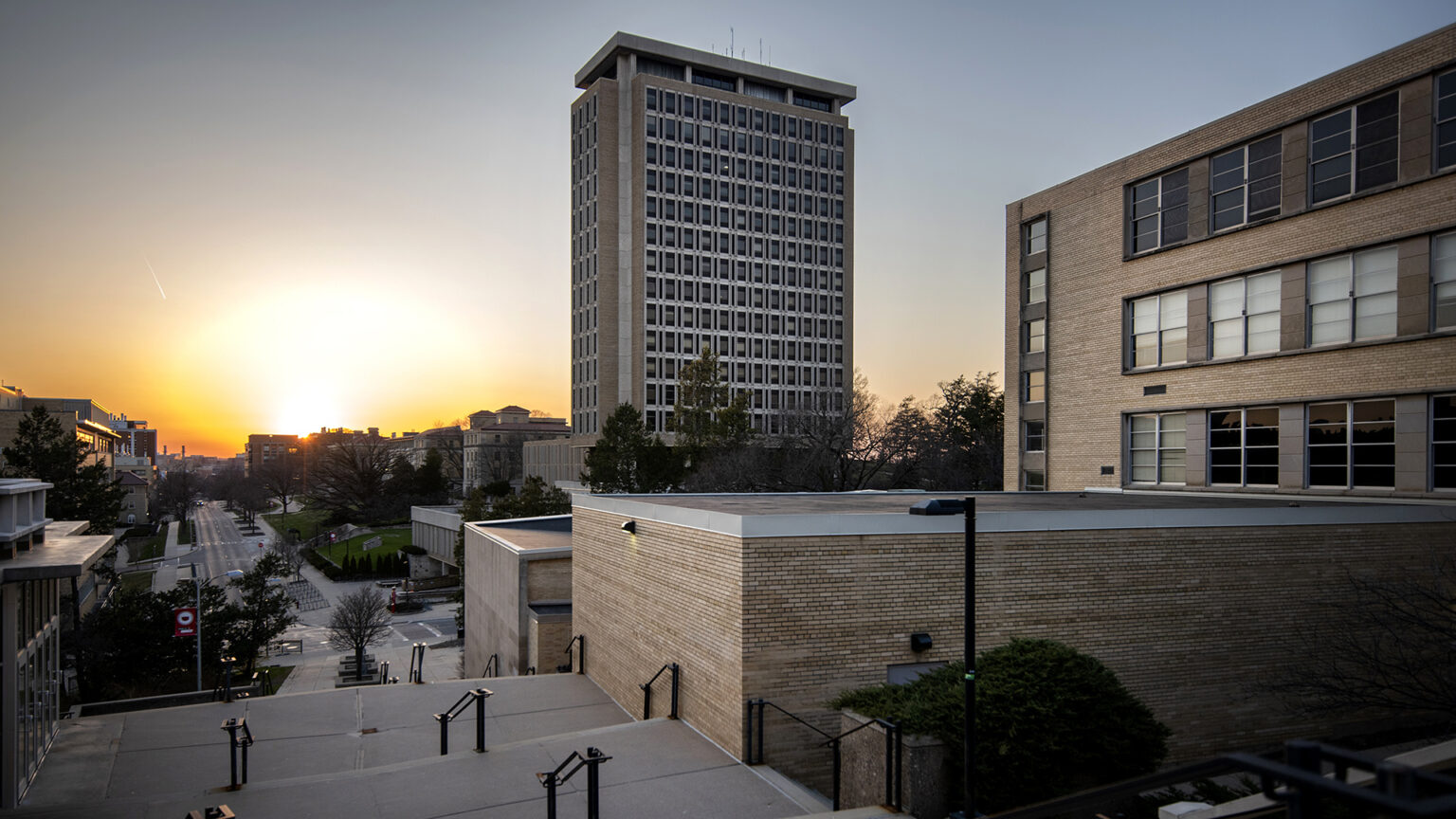
The sun sets behind Van Hise Hall on April 2, 2021, at University of Wisconsin-Madison. Universities of Wisconsin regents voted Dec. 13, 2023, in favor of a deal with Republican lawmakers to limit diversity positions in exchange for funding for employee pay raises and campus construction, after previously voting to reject the proposal four days earlier. (Credit: PBS Wisconsin.)

MADISON, Wis. (AP) — In a surprising about-face, the Universities of Wisconsin regents approved a deal on the evening of Dec. 13 with Republican legislators to limit diversity positions at the system’s two dozen campuses in exchange for money to cover staff raises and construction projects.
Assembly Republican Speaker Robin Vos, who brokered the deal with Universities of Wisconsin President Jay Rothman, tweeted that the plan is the first step in a continuing GOP effort “to eliminate these cancerous DEI (diversity, equity and inclusion) practices on UW campuses.”
Democratic Gov. Tony Evers issued a lengthy statement after the vote saying the regents’ decision has left him disappointed and frustrated. He accused Vos of negotiating by bullying, saying the entire affair was motivated by his disdain for public education at every level. The governor promised that he would “make damn sure” that UW campuses work for everyone.
The regents passed the plan 11-6 during a video conference, capping an ugly five-day episode. The board had previously rejected the deal on a 9-8 vote on Dec. 9 amid complaints from Democrats that it would sell out minority and LGBTQ+ students and faculty.
But after a closed-door regents meeting on Dec. 12 led by Rothman, three regents who initially opposed the proposal voted for it on Dec. 13, including Karen Walsh, Amy Blumenfeld Bogost and Jennifer Staton. They said ahead of the Dec. 13 vote that they opposed the plan at first because it needed more deliberation. Since then they’ve had time to review and discuss the deal, they said.
“So why are we voting again? It was clear last Saturday that the board did not have sufficient time to discuss this document,” Walsh said.
Republican Chris Kapenga, president of the state Senate, had threatened not to confirm regents who voted against the deal. Bogost is the only one who flipped who is unconfirmed.
Regents who voted against the proposal lamented that making financial decisions outside of the state budget process sets a dangerous precedent. They questioned what concessions Republicans would demand next in exchange for dollars.
“The very premise of this deal is a nonstarter,” said Angela Adams, who voted against the plan twice. “I did not join this board to be thrust into political gamesmanship. Supporting DEI (diversity, equity and inclusion) on campus is not something we should be exchanging, in my opinion, for dollars.”
The deal’s supporters said campuses will remain committed to promoting diversity. But at the same time the system needs money to move forward and continue giving students opportunities.
“Politics is how the sausage is made, unless we prefer tyranny,” said Bob Atwell, who voted for the deal on Dec. 9 and again on Dec. 13.
The state budget that Republicans approved and Evers signed in the summer of 2023 called for a 6% raise for some 34,000 university employees over the next two years. But Vos refused to allow the GOP-controlled Legislature’s employment committee to release the money in an attempt to force the regents to reduce the number of positions that work on diversity, equity and inclusion projects.
Vos has argued that such efforts only produce division. The dispute reflects a broader cultural battle over college diversity initiatives playing out across the country.
Evers has leveled intense criticism at Vos and Republicans for withholding the funding for raises. He filed a lawsuit with the Wisconsin Supreme Court in October arguing that lawmakers had overstepped their authority by blocking the money.
The deal the regents approved calls for lawmakers to release the money for the raises and various campus construction projects, including $200 million for a new engineering building at the system’s flagship campus in Madison.
The regents, in turn, will freeze hiring for diversity positions through 2026 and shift at least 43 current diversity positions to focus on “student success.” Campuses also will have to eliminate statements supporting diversity on student applications. UW-Madison will have to end an affirmative action faculty hiring program and create an undefined position focused on conservative thought.
Rothman told reporters after the vote that the deal was a necessary compromise in a state with a Republican-controlled Legislature and a Democratic governor.
“We live in a political environment,” Rothman said. “It is not shocking to say we live in a polarized state … in that context, if you’re going to move forward, if you’re going to make progress, you have to find a way forward to find compromise. And I think that’s what we did in this process.”
Associated Students of Madison, UW-Madison’s student government group, said it was “disheartened” by the vote on Dec. 13 and would hold accountable UW officials who promised diversity efforts would continue.
Democrats spent Dec. 13 trying to persuade regents to reject the deal again. State Rep. Dora Drake, chair of the Legislature’s Black Caucus, blasted the plan during a news conference at the state Capitol.
“This deal is part of a systematic racist deal and it is discriminatory,” Drake said. “It is discriminatory toward students, faculty and staffs of color because their experiences should never have a price tag and should never be bought out.”
She provided reporters with a memo from the Legislature’s attorneys that concluded that the regents’ closed-door meeting on Dec. 9 may have violated the state’s open meetings law because the meeting notice was too vague. She asked Attorney General Josh Kaul and District Attorney Ismael Ozanne to investigate.
Kaul spokesperson Gillian Drummond didn’t respond to an email inquiring about whether the attorney general would review Drake’s allegations. Ozanne also did not respond to an email.
State Department of Public Instruction Superintendent Jill Underly, who doubles as a regent by virtue of her position, didn’t vote Dec. 9 or Dec. 13. Her office has said she is vacationing in Europe with her elderly mother.
Underly asked regents Dec. 13 to reschedule the vote, saying she lacks reliable internet service, but the regents did not accommodate her request and she didn’t appear on the video conference.
Bogost appeared from Thailand and UW-Superior Chancellor Renee Wachter joined from an airport. Wachter didn’t say where she was.
Associated Press writer Scott Bauer contributed to this report.
Editor’s note: PBS Wisconsin is a service of the University of Wisconsin-Madison and the Wisconsin Educational Communications Board.
 Passport
Passport




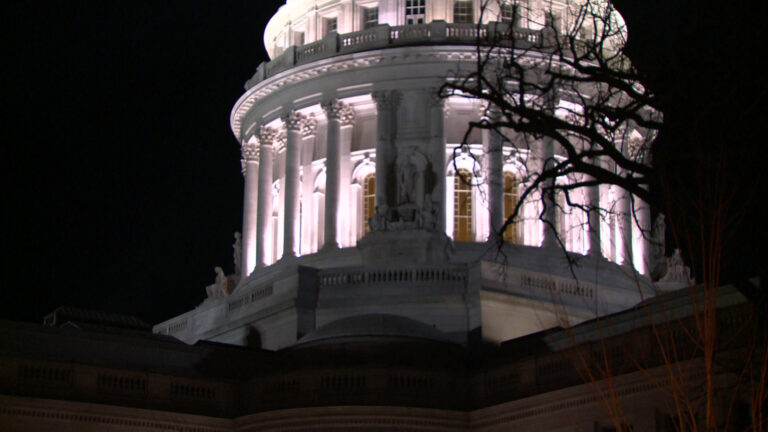
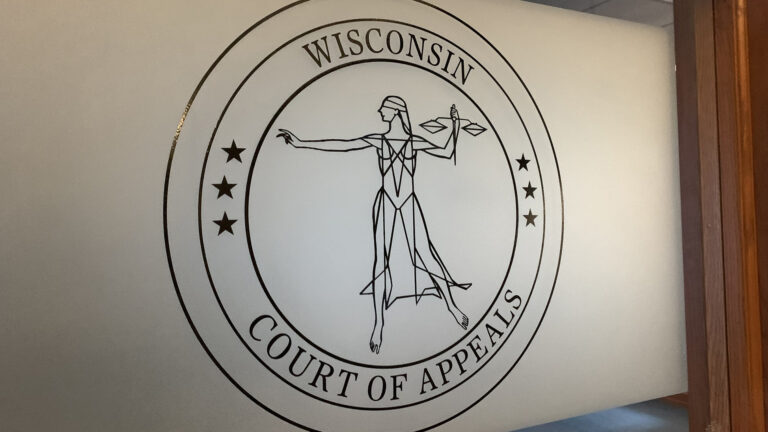
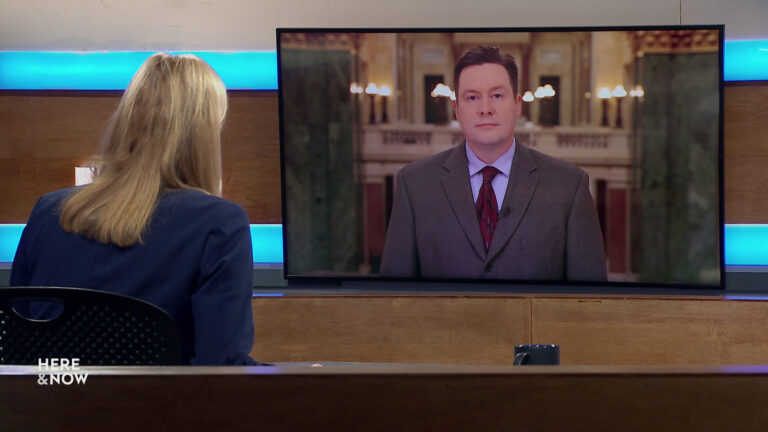
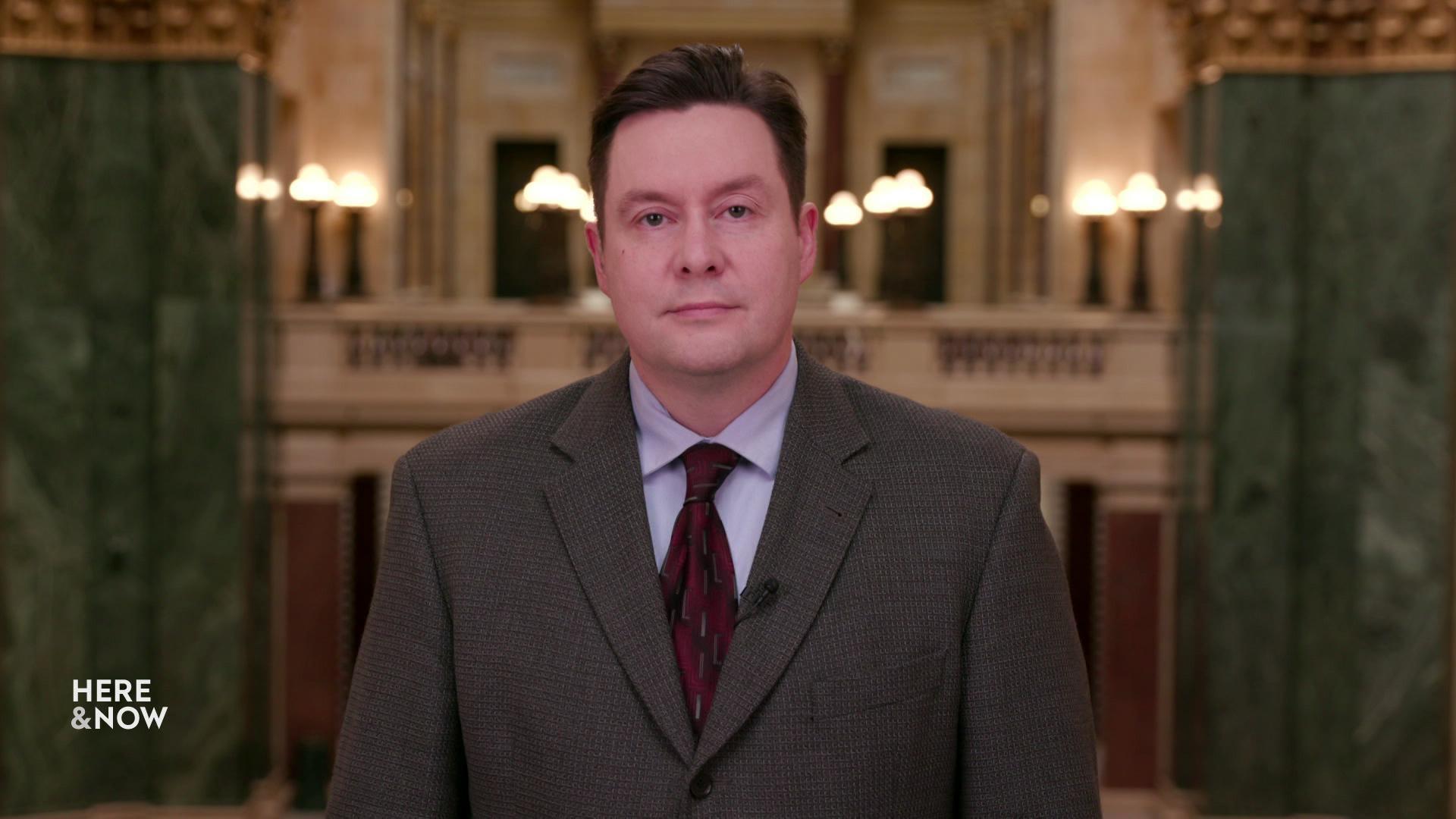
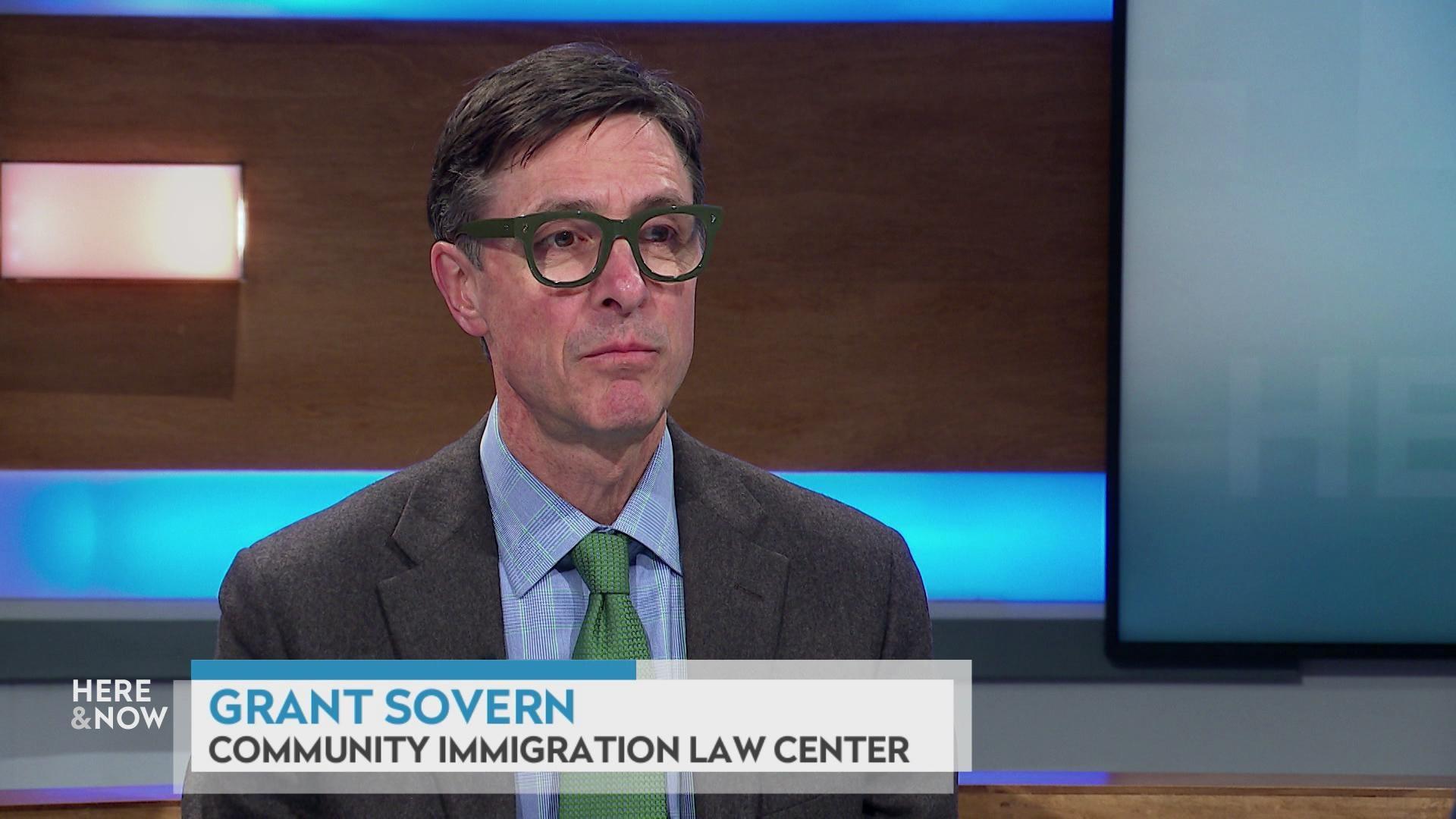
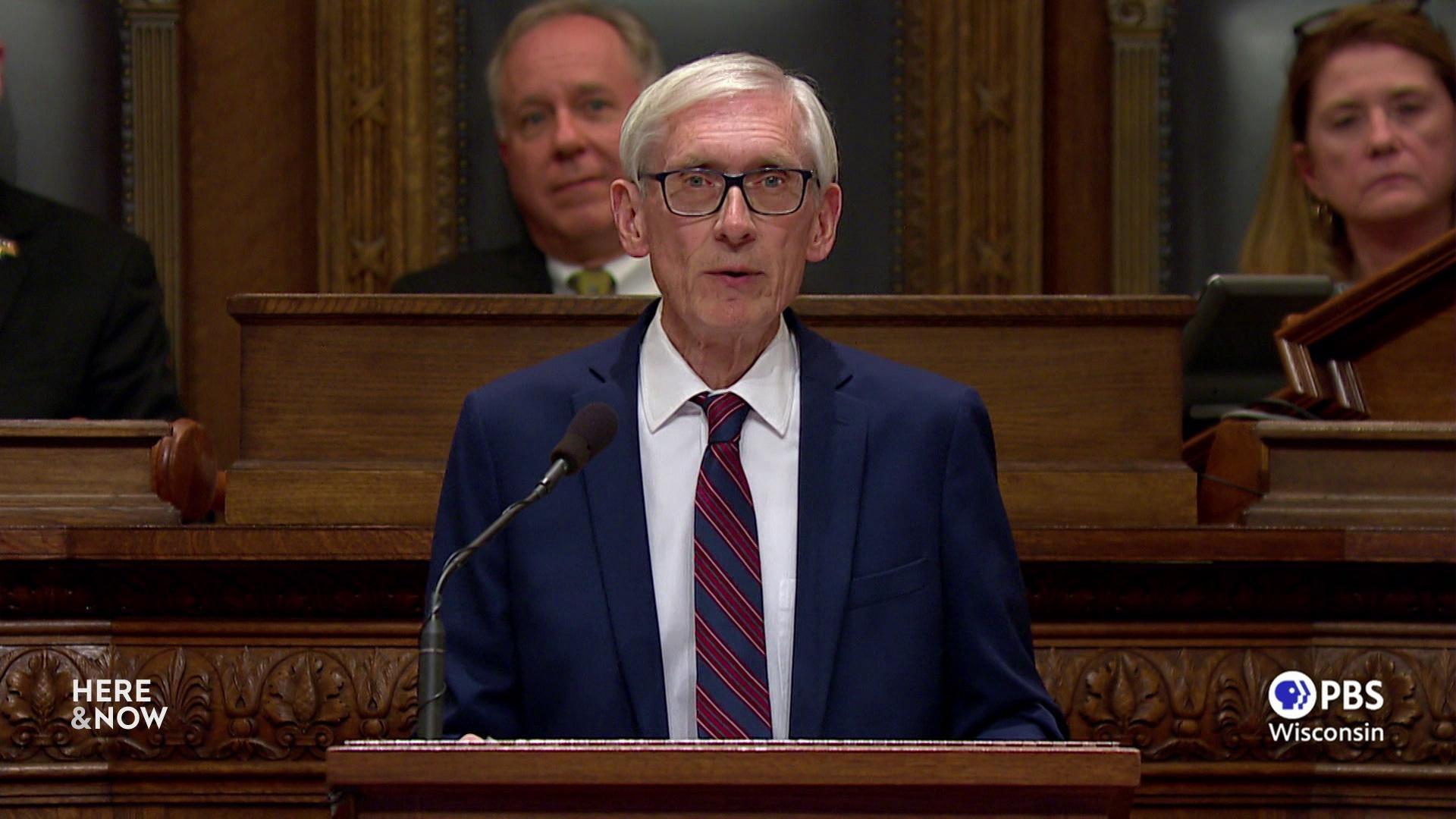

Follow Us